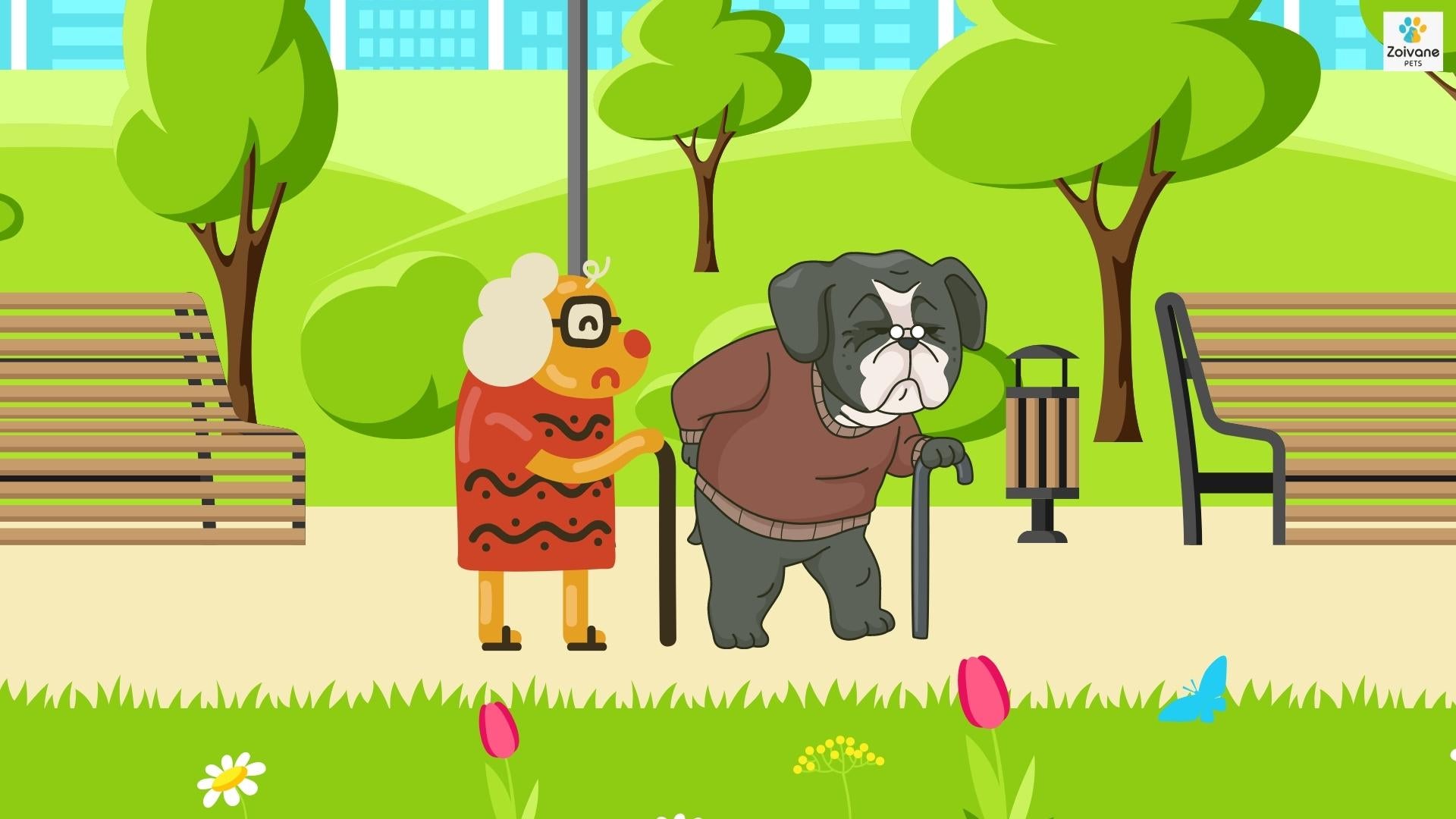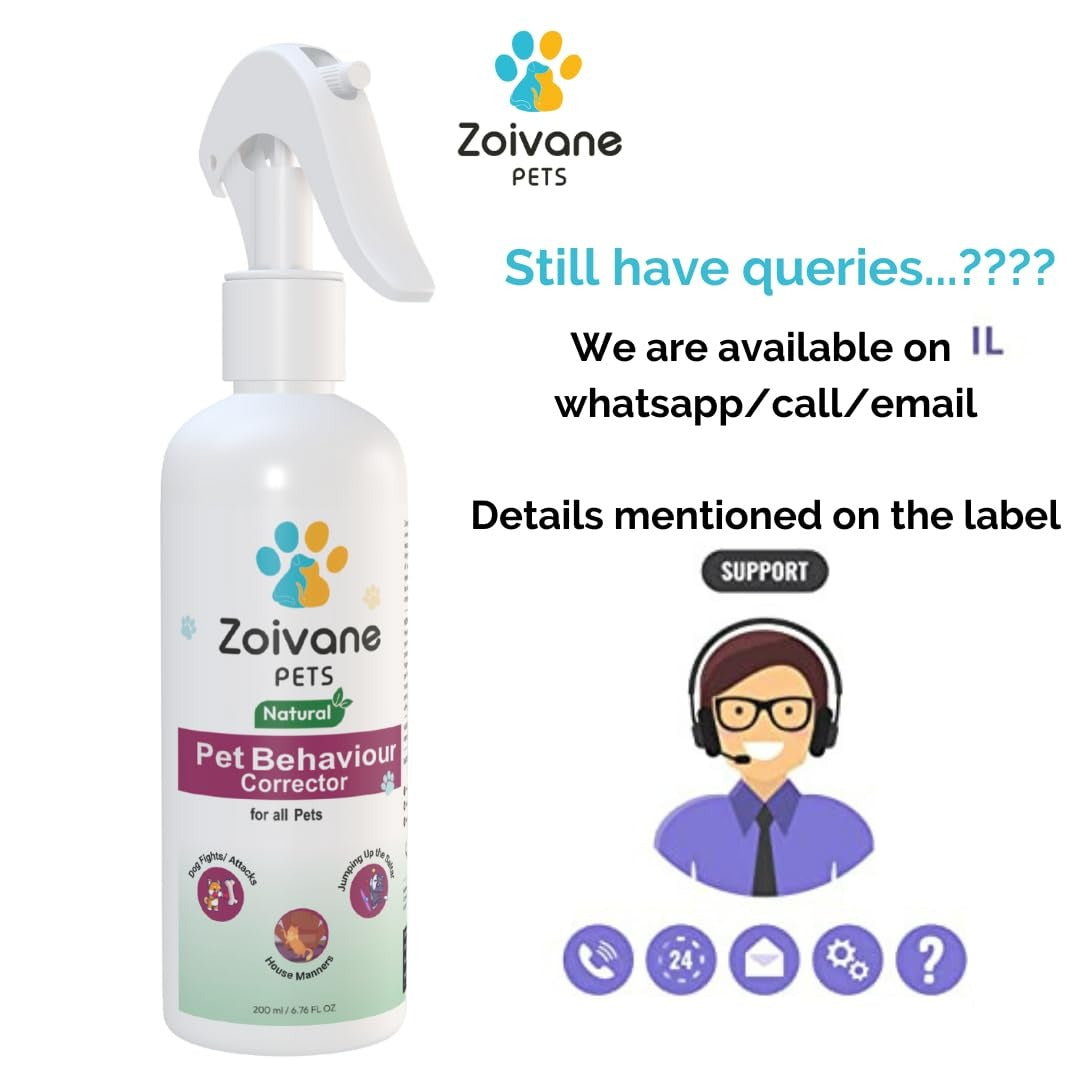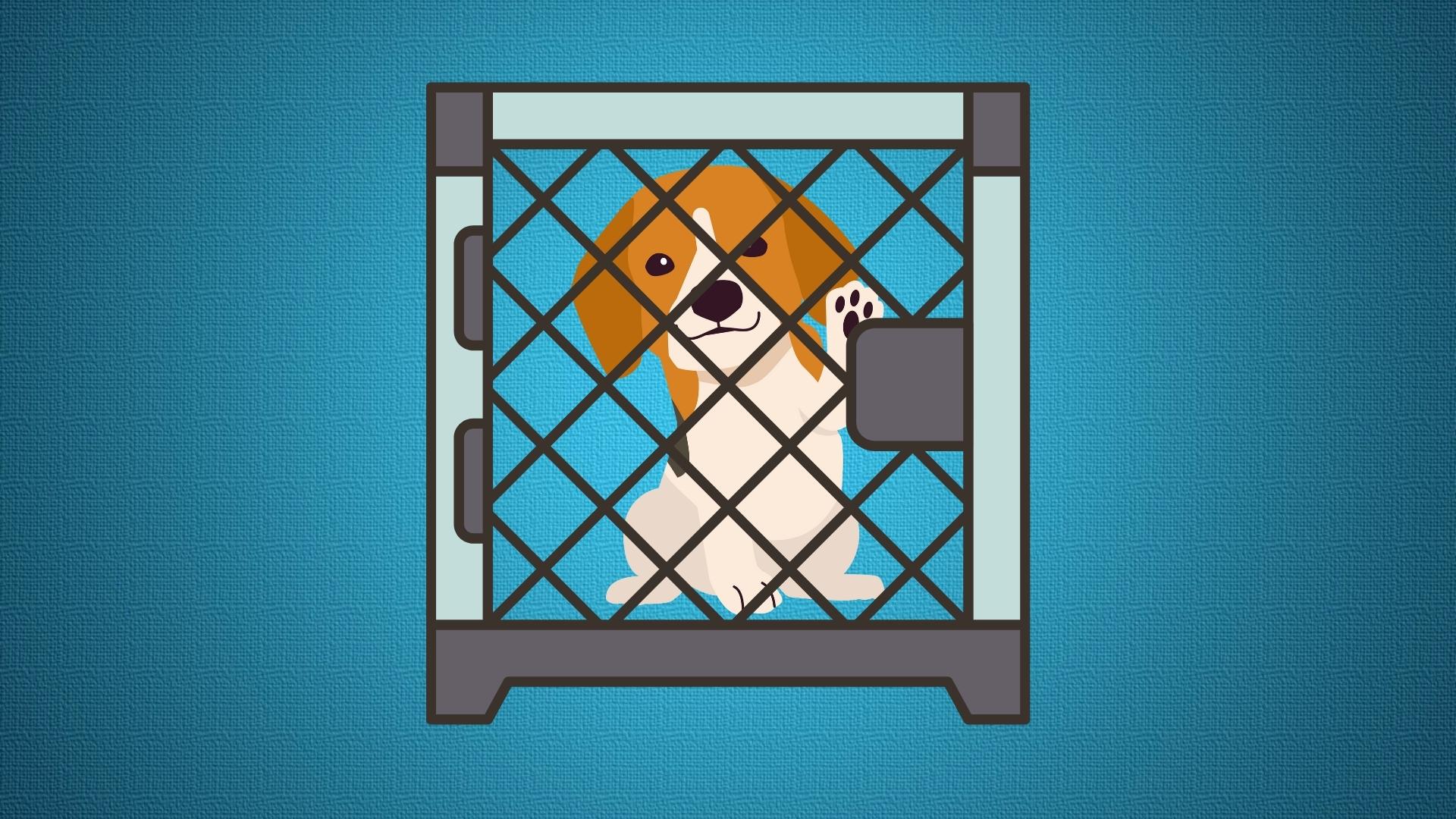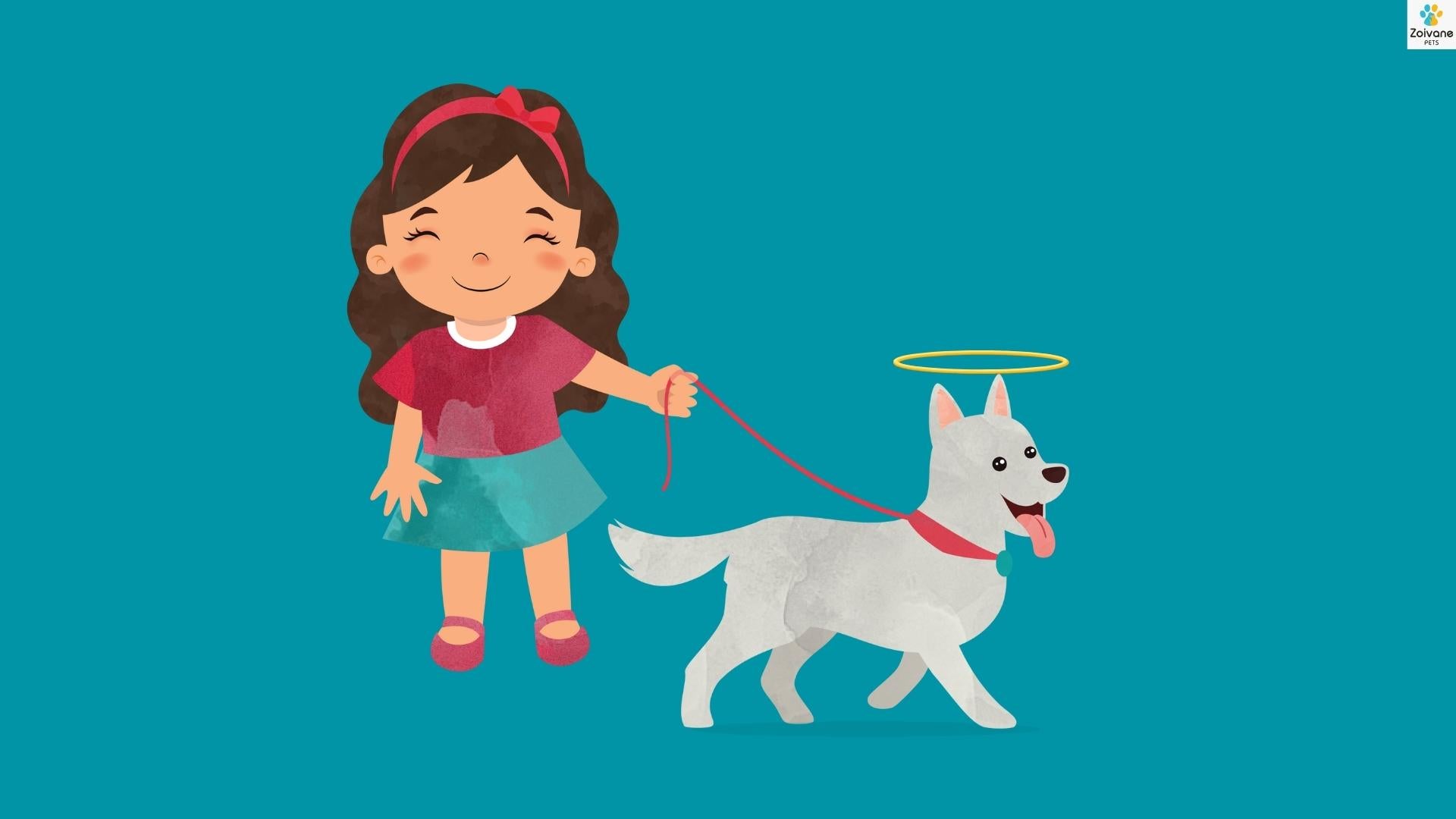
How to take care of senior pets
Raising a pet is one magical journey; a rollercoaster of an experience that will stay with you forever. Our pets become an indispensable part of our lives and as they grow older & their health starts to decline, it’s heartbreaking to see them struggle with rudimentary actions & health issues. This is when it becomes all the more important to take extra care of them. This includes the balanced nutrition, adequate exercise, regular vet visits and so much more.
Not all pets age the same way; similarly, there can be no blanket age when a pet can be considered a senior. The American Kennel Club states that cats can be regarded as ‘senior’ at around 11 years of age & dogs, depending on their breed & size, age faster. While Chihuahuas may be considered senior by age 9-10, for larger breeds like the Mastiff & the Great Dane, this number drops to 6 years.
As they age, they become less active, their vision & hearing deteriorates & they’re more prone to diseases as their immunity plummets. However, this is no reason to stop caring or abandoning your pet.

“People drop off strays, injured animals at our door all the time. But as a volunteer what really shocks me is that people drop off their senior pets because they can’t “take care” him anymore. Pet parents should understand that a pet is not a trophy, it is a family member that needs your heart & your care especially when he gets old.” – Gaurav Sharma*, Animal Rights Activist.
This blog takes an in-depth look at the various problems pets face when they start getting older, signs Pet Parents should watch out for and remedies & actions to make your pet’s last few years as comfortable, joyous & fun as possible.
Let’s take a look at the various problems & complications pet parents must watch out for: -
Obesity
As pets get older, their activity levels plummet, they burn less calories as they once did. Added with age related decreased metabolism, weight gain becomes their biggest bane. Obesity, in itself, isn’t a problem, but the complications it brings along are, such as heart disease. It’s important to keep a keen eye on your pet, consult your vet & manage your pet’s diet & feeding amount.
Arthritis
Just like humans, pets, especially dogs, are prone to Osteoarthritis in old age. If you notice your pet stiff around the joints or limping, they may have Osteoarthritis – the breakdown of cartilages in joints between bones. In addition, Arthritis causes pain, inflammation & decreased movement.
Look for the following signs: -
- Difficulty in getting up or laying down
- Limping
- Losing muscle mass in the rear part of body
- Decreased interest in physical activity (running, jumping, climbing stairs)
- Trouble in squatting for urine or pooping & having bathroom accidents
- Irritability
- Sensitivity to touch
Consulting a veterinarian is mandatory here. Physical exams & X-rays are recommended. Just like humans, there is no foolproof cure for Arthritis, therefore treatment is focused on slowing its progression & easing discomfort. The vet may prescribe anti-inflammatory medicine or joint supplements.
Cognitive Decline
As they get older, Cats & Dogs undergo cognitive changes. The simplest examples are them becoming forgetful or anxious. Signs include soiling the house, learning or memory issues, increased anxiety, disorientation, confusion & erratic sleep. Consult your vet if you see the following signs as they could be a sign of Cognitive Dysfunction Syndrome (CDS) or the onset of a greater disease.
Vision Loss
Just like humans, senior pets suffer from Vision loss. It’s usually gradual, which is why Pet Parents are late to realise it, until the damage is significant. Dogs however, adapt well by relying on other senses. Watch out for these signs: -
- Problem locating toys, water & food bowls
- Bumping into walls or furniture
- Hesitating while climbing down stairs or furniture
- Not being able to make eye contact
- Anxiety
- Clingy behaviour
Hearing Loss
Just like vision, pets are prone to hearing loss over time. This, however, is easier to identify. Look out for the following signs: -
- Sound sleeping
- Not being able to comprehend verbal cues
- Not coming when called
- Not being disturbed or spooked by loud noises
- Ignoring previously enticing sounds (doorbell, toys, whistles)
Hearing loss in senior dogs is usually caused by deterioration of the nerves inside the ear. On the other hand, vision loss can result from many health issues such as Glaucoma and Cataract. Depending on the issue, the sooner your vet examines your pet, the better.
Urinary Incontinence & Kidney Disease
Many senior pets begin to show signs of incontinence, in other words, loss of bladder control. Make a note of increased accidents in the house, dribbling while walking or frequent urination. However, there are other causes of urinary incontinence like Urinary Tract Infections, Hyperglycemia or Diabetes & bladder stones. Consult your veterinarian for an accurate analysis.
Another cause for concern is kidney disease. When kidneys are no longer able to efficiently filter out waste from your pet’s blood, the first sign you see is bathroom accidents, excessive thirst & frequent peeing. Loss of appetite & vomiting are further symptoms. Watch out for such symptoms & consult your vet for treatment that may include a special renal diet, medications, and fluid therapy.
Cancer
As your pets age, their risk of cancer increases. Simply put, Cancer is the uncontrolled growth of abnormal cells in the body. Since Cancer can occur anywhere in the body, its symptoms depend largely on the location of the disease. Watch out for the following symptoms in your pet: -
- Lumps or Bumps
- Weight Loss
- Loss of appetite
- Vomiting
- Diarrhoea
- Unpleasant odour from your pet
- Breathing problems
- Bathroom accidents
- Sores that don’t heal
- Pungent Discharges from body openings (nostrils, anus)
If at all, you come across any of these symptoms don’t hesitate to consult vet. Although treatment will depend largely on the type of cancer & how advanced it is, but the sooner it is diagnosed, the better.

These were some of the major issues & problems pets face as they start ageing. Let’s now take a look at some key tips on how to take special care of your senior pets.
Age-Appropriate Diet
A balanced diet plays a vital role on your pet’s health, especially when they get old & their intake & metabolism drops. Pets also tend to become picky eaters & start boycotting certain dishes. It’s vital that you consult your vet & create a diet chart for your pet.
Regular & Moderate Exercise
Although your senior pet cannot jump as high or run as fast as he used to, exercise is still an important aspect of senior pet care. He may be old in age, but not in spirit! It is proven fact that pets tend to age better, both physically & mentally when daily exercise has been a part of their routine. An important rule of thumb is to keep exercise regular & moderate. Depending on your pet’s fitness & fatigue, create an exercise regimen. You may also consult your vet.
Regular Vet Care
As your pet grows older, their immunity tumbles & they get more prone to ailments like Joint Pain, mobility issues etc. Be regular with your vet visits. This gives pet parents a chance to identify possible complications at their onset. Regular wellness examinations & bloodwork are vital and serve as a baseline for future possible complications.
Maintain Oral Health
As your pet grows old, don’t let dental care take a back seat. Factually speaking, adult pets don’t usually get the best dental care as part of their grooming regimen. Which is why as they get old pets end up with poor dental hygiene. Don’t forget to brush your pet’s teeth regularly; if they’re not a fan start giving them dental treats.
Vaccinations & Medication
Although senior pets have adequate antibodies in their system & don’t require vaccinations as often, it is best to consult your veterinarian for impending ailments & possible booster shots. They may need regular medications, make sure to be organized with them.
Regular Grooming
As pets age, so does their fur & skin. A once luxurious & shiny coat can become dull & flaky. Seniors can also get dry, flaky & itchy skin which if not cared for on time can get worse. Don’t forget to regularly brush your pets & give them timely haircuts if they have a long coat.
More comfort
Seniors are less active as when they were young. This is perfectly fine, but as Pet Parents ensure that your house has more comfortable, softer surfaces for your pet to lie down or sleep. This greatly increases your pet’s comfort & relaxation.
Dog Stairs & Ramps
Pets suffer from stiff joints & mobility issues in their senior years. In spirit they’re still young & they still wish to be on our side all time. Helping them on the stairs, furniture, car by using ramps or steps helps your pet to get around the house better.
Weight Control
A drastic increase or decrease in weight in senior pets is relatively common. They are either getting too many calories & eventually become overweight or they’re getting thinner because their muscles are weakening. Work with your veterinarian to ensure that your pet maintains weight appropriate to his size & age.
Managing Accidents
Senior pets are bound to start having accidents at some point. Don’t fuss! It’s better to use positive reinforcement and use antiseptic cleaners like the Zoivane Odour Removal Spray. You may need to potty train them again if they’re unable to walk too much. Buy the Zoivane Potty Training Spray here.
To conclude, not all pets age the same, but age they do. It is a natural process and you, as pet parents, should be prepared for it. As they get older, your pet may have special needs that need to be met & you’ll need to learn how to make an old pet comfortable. With proper elderly care and attention, your pet will maintain their health and continue to lead a happy life for many years to come.
You can connect with Zoivane Pets on our Website, Instagram, Linkedin, Facebook & YouTube. For suggestions and writeups mail us at wecare.zoivane@gmail.com or Whatsapp us on +91-9727054006




اترك تعليقًا
This site is protected by hCaptcha and the hCaptcha Privacy Policy and Terms of Service apply.